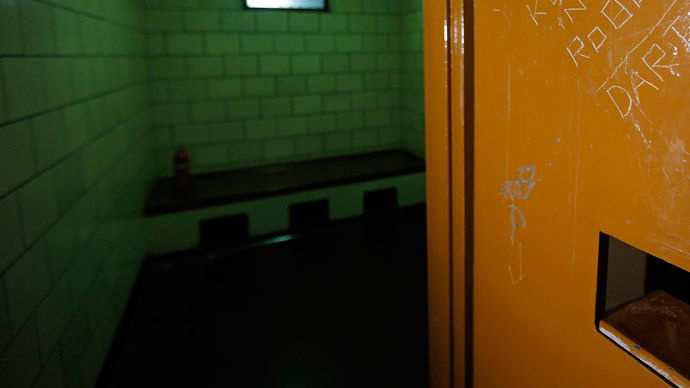Rape and coerced sex represents only a fraction of all sex in prisons, with consensual encounters widespread, a report has found. Sex between inmates, masturbation and pornography were found to be widely accepted.
The report on sex in prison, commissioned by the Howard League for Penal Reform, calls for “coherent and consistently applied policies which recognize and respond to the reality of consensual and coercive sex in prison.”
The latest section, specifically addressing consensual sex, found that despite consensual sex being common, prisoners are separated if prison staff discovers a sexual relationship.
The commission’s work came under pressure from the Ministry of Justice (MoJ), which banned researchers from interviewing current inmates. The group based its research on interviews with 26 former prisoners who spoke about their experiences, and available MoJ data.
“It was difficult, if not impossible, for prison staff to determine whether a relationship between prisoners was consensual or coercive and the nature of the relationship could change over time,” the report said.
READ MORE: Thousands raped & sexually abused in British prisons – report
“Prison governors have expressed concerns about whether relationships formed in prison can ever be truly consensual as prisoners are constrained by their environment and may be forced into choices they would not make outside of prison.”
One unnamed former prisoner told the commission about his experiences.
“If I want to practice safe sex, I have to ask for condoms from healthcare, who then send a memo to OMU [offender management unit] that I am sexually active, at which point I would be moved off the wing for ‘operational reasons.’ I had to pay a ridiculous price for condoms from other prisoners, just so I would not be split up with my partner.”
It also found that many men who would normally identify as heterosexual would turn to homosexual practice during their time in prison.
“The term heteroflexible has been used by sexual health workers to describe the behavior of men in prison who identify as heterosexual but are flexible about having sex with men while in prison.”
The report says while there is mainly anecdotal evidence to support the phenomenon, one study previously found prisoners’ attitudes to same-sex acts changed the longer they were in prison.
“Prisoners serving longer sentences or held in high security facilities were more likely to acknowledge a homosexual identity,” it added.
The commission further found that prisoners were at a higher risk of sexually transmitted infections than the rest of the population due to increased drug use and unprotected sex.
Dr Alisa Stevens, a lecturer in Criminology at the University of Southampton who conducted interviews said the need for change within the prison system was “urgent.”
“This research has illustrated the urgent need for coherent and consistently applied policies which recognize and respond to the reality of consensual and coercive sex in prison.”
Frances Crook, director of the Howard League for Penal Reform, said: “This final report of the commission shows that sexual activity is widespread in prisons and must be seen as an urgent health issue. The commission has conducted the first systematic review of sex in prison and it is clear important lessons must be learned, and fast.”

